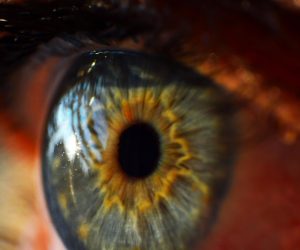
A Good Night’s Sleep Is Good for Your Heart: Here Are Some Tips for Better Sleep and a Healthier Heart
Lorie Johnson via CBN News – There’s no question that sleep is important to our health and well-being. Now the American Heart Association is emphasizing that it’s also one of the most important paths to heart health. That’s worth our attention because heart disease kills more Americans than any other cause of death.
To show the powerful connection of sleep to a healthy heart, the AHA is adding sleep to its overall key measurements. It joins diet, exercise, nicotine exposure, body mass index, blood lipids, blood glucose, and blood pressure.
Most health experts and institutions recommend adults get seven to nine hours of sleep each night, preferably with few to no interruptions. Bodies need that time to repair and reset, and doctors say without it, our heart pays the price.
Research shows people who regularly sleep less than six hours a night my triple their risk of heart disease. The concern is that’s not enough time spent in the deepest stage of sleep, when blood pressure and heart rate drop as much as 20 percent, reducing stress on the heart. Also during this sleep stage, the brain releases growth hormones that help the heart recover from demands placed on it during the day.
Deepak R. Talreja, M.D., a cardiologist with Sentara Healthcare told CBN News sleep is very important to heart health, but unfortunately, today more than half of all U.S. adults don’t get enough, and sleep deprivation is more common now than it was in past generations.
“As our society has gotten busier and busier and we’re all available 24/7 with devices that connect us all the time,” he said, “most Americans don’t get enough sleep.”
He sees firsthand how that’s taking a toll.
“When someone is sleep deprived, it affects their overall functional status, their mental state, they tend to have more problems with depression, pessimism, anxiety,” he explained. “Then there are direct effects on inflammation, on heart rhythm issues, and on the presence of heart disease.”
Dr. Talreja tells his patients that the path to better sleep begins with the right environment. The bedroom should be dark, cool (but not too cold), and quiet, which can include a white noise machine to cover up environmental or outside noises.
Then establish your best bedtime and stick to it.
“Set an alarm to remind you, just like you have a wake-up alarm, a go-to-sleep alarm can be very helpful,” he said.
Stay away from electronics well before bedtime and silence them to avoid interruptions during the night. If you do wake up, stay away from the smartphone.
“We’re tempted to pull our device quickly if we’re having a little bit hard time sleeping and look at Facebook, Twitter, Instagram, or do things that one, introduce light to our environment, and two rev us up instead of letting us calm down,” said Dr. Talreja.
Exercise is also very important to getting a good night’s sleep.
“That way when it comes time for sleep, your body’s ready for it. Someone who doesn’t do anything (physical) during the day, they haven’t really worn out their body so they’re not ready to sleep,” Dr. Talreja explained.
Dr. Talreja points to a star patient who changed his ways. Severino Tiaba now works out daily and goes to bed at nine o’clock.
“Now that I’m getting older, it’s routine,” Severino told CBN News. “The kids are out of the house. It’s just me and my wife.”
Severino made a lot of other changes after suffering a heart attack six years ago. “My chest was burning real bad,” he recalled. “I had my wife take me to the emergency room because I felt like I needed to get checked out and it just got worse.”
That near-death experience convinced the beer-drinking, cigar-loving, junk food junkie to do a 180. “I want to be around to see my grandkids,” he said.
Severino started by following Dr. Talreja’s advice to switch to a more heart-healthy diet. Dr. Talreja recommends a plant-based eating plan that minimizes saturated fat, sugar, and processed foods.
Severino enjoys the Mediterranean diet. “I eat a lot of fruits, a lot of vegetables, a lot of grains,” he said. “No more red meat, no more pork. So I eat a lot of cold water fish, salmon, mackerel, and poultry.”
He gave up alcohol except an occasional glass of red wine, and ditched the cigars.
“The biggest risk factor for heart disease in this era is still smoking,” said Dr. Talreja. “Quitting smoking is far and away the single most important thing a person can do.”
Dr. Talreja says some people are better able to improve their heart health by making changes gradually and with the help of others.
“First, introduce more fruits and vegetables into your diet. Cut down fried food and fast food, cut down soda,” he advised. “Pick specific goals you can achieve, and then pull other people in your life into it. If a whole family decides together they’re going to eat more healthful, they’re more likely to succeed.”
So while heart disease is currently America’s number one killer, that could change.
“If we could get the average American to eat better, exercise, pay attention to their other risk factors, and sleep better,” Dr. Talreja said, it would make a world of difference.
To read the original article click here.






